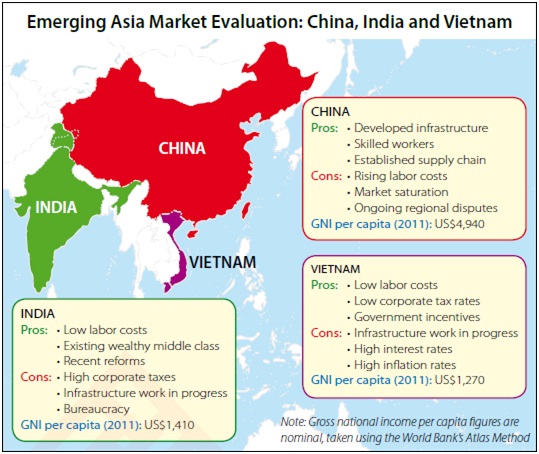Mar. 26 – At the turn of the 21st Century, there were two main schools of commercial thought with regards to China. The most popular was that China represented a massive market to sell to with roughly 1.3 billion potential consumers. The second was that China had a young, available and inexpensive work force that was relatively skilled and disciplined. While the latter has proven the dominant economic driver for the past two decades, China’s one-child policy (implemented nationwide in 1982) has meant that the nation’s supply of cheap labor has been drying up – and is now doing so at an increasingly rapid rate.
China today is one of the fastest aging populations in the world – a fact that has not gone unnoticed by the central government. Wary of inheriting a huge population of aged, but poor citizens, it has been state policy over the past few years to get more money into the pockets of Chinese nationals and to implement what by global standards is a relatively expensive, contribution-based state insurance scheme.

This article was originally published by Asia Briefing. You can read the rest of the article here.
You can read exclusive content from Gateway House: Indian Council on Global Relations, here.
Copyright © 2013 by Asia Briefing.


